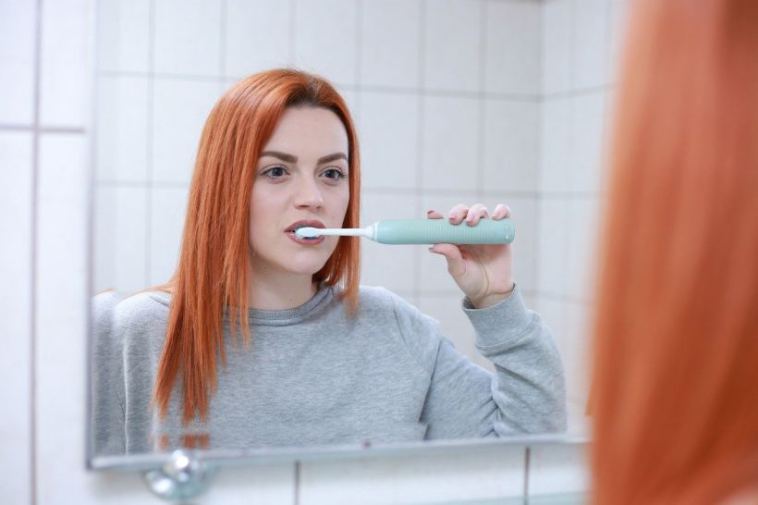- Like
- SHARE
- Digg
- Del
- Tumblr
- VKontakte
- Flattr
- Buffer
- Love This
- Save
- Odnoklassniki
- Meneame
- Blogger
- Amazon
- Yahoo Mail
- Gmail
- AOL
- Newsvine
- HackerNews
- Evernote
- MySpace
- Mail.ru
- Viadeo
- Line
- Comments
- Yummly
- SMS
- Viber
- Telegram
- JOIN
- Skype
- Facebook Messenger
- Kakao
- LiveJournal
- Yammer
- Edgar
- Fintel
- Mix
- Instapaper
- Copy Link
Introduction
It’s no secret that our gums may be the most important part of our mouth. Not only do they keep food from spilling out, but they are also central to the immune system, and are a key factor when it comes to a healthy smile.
However, gum diseases can have critical effects on your teeth and your health in general. This is why maintaining healthy gums should be a top priority for you as a dental patient.
Here are seven simple ways to keep your gums healthy…
1. Give them a break
According to Dr. Kartik Antani, a renowned Rio Rancho dentist, one of the most common ways to keep your gums healthy is by giving them a break. Many people have the false notion that teeth and gums should always be brushed together, but this is not true. It can actually cause more harm than good. When you brush your teeth, plaque from your mouth gets pushed onto your gums. If you brush both at the same time, it can lead to gum recession or periodontitis. And problems with either will result in serious dental issues down the road.
So, what should you do? Simply brush your teeth, then rinse with water before brushing your gums. This will remove bits of food and bacteria that could cause problems for your gum tissue if left on there for too long.
2. Maintain proper oral hygiene
In order to have healthy gums, you first need to take good care of your teeth. Brushing your teeth twice a day and flossing at least once a day is an effective means of maintaining a proper oral hygiene. When it comes to the type of toothbrush you should be using, there are two main types: manual brushes and electric brushes. Both are effective in removing plaque, but electric brushes feel more comfortable to use, as they vibrate and rotate at a high speed.
You should also replace your brush every three months or so because the bristles on the brush will start to wear down after that amount of time and won’t be as effective for cleaning teeth anymore. Sticking with the same brand of toothbrush is important because different brands use different bristles, which means the effectiveness can vary from one brand’s brush to another’s.
3. At least twice a day, brush and floss
Brushing and flossing your teeth is one of the simplest ways to take care of your gums. It’s essential for fighting plaque buildup, which can lead to other gum problems. There are a lot of different kinds of toothbrushes that you can use, so there’s no excuse not to brush twice a day! But don’t forget: brushing and flossing aren’t the only thing you need to do when it comes to healthy teeth and gums.
4. Brush with fluoride toothpaste
Fluoride toothpaste is great for keeping your teeth clean and strong, but it’s also great for your gum health because it helps reduce inflammation in the mouth. The special ingredient in fluoride toothpaste is called silica, which is what helps to fight inflammation on the surface of the skin and under it. When you brush with fluoride toothpaste, you help reduce plaque buildup on your gums and decrease any risk of gum disease developing.
5. Use a soft-bristled brush
When choosing a toothbrush, opt for one that has softer bristles because they are less abrasive than those with bristles that are hard or medium-hard (like nylon). Hard bristles can wear away at enamel and make your teeth more susceptible to cavities. Your gums are sensitive so choose a brush that won’t do more damage than good!
6. Avoid using tobacco products and excessive alcohol consumption
It may seem like avoiding these two things is for the best, but there are a few other reasons why you should avoid tobacco products and excessive alcohol consumption.
Smoking cigarettes and drinking too much alcohol will contribute to gum disease, which leads to an increased risk of tooth loss. Tobacco and alcohol also have negative effects on your teeth. They can cause teeth to rot, which in turn can lead to bad breath. Smoking cigarettes also stains your teeth yellow, which impacts the appearance of your smile. Alcohol also dries out the tissues in your mouth, which may lead to tissue inflammation or sores in your mouth.
The good news is that quitting these habits will help you maintain healthy gums!
7. Use an electric toothbrush
It’s a common misconception that electric toothbrushes are more expensive than manual brushes. In reality, the opposite is true. Manual toothbrushes may seem cheaper at first, but they need to be replaced more often and can become ineffective over time. In contrast, electric toothbrushes last a long time and can be more effective in removing food particles from your teeth.
Many of these electric toothbrushes also come with a built-in timer and sensors that can detect when you’re brushing too hard or too softly. This feature helps ensure you brush evenly and effectively all around your mouth.
8. Have your teeth cleaned professionally every 6 months
One of the simplest ways you can maintain healthy gums is by having your teeth professionally cleaned every six months. This will remove plaque and tartar that form on your teeth and can lead to gum disease.
If you have a dental phobia, there are many ways to manage this fear. Some people choose to wear a protective mouthpiece before their appointment, while others find it helpful to listen to music during the cleaning process. Whatever method you choose, remember that dental appointments are important for your oral health and should be kept as scheduled.
9. Speak with your dentist about professional gum care
One of the best ways to keep your gums healthy is to speak with your dentist about professional gum care. Your dentist will be able to identify any issues and offer a treatment plan for you. Not only that, but your dentist can also advise you on the proper oral hygiene routine for your particular needs.
If you’re like most people, you brush at least twice a day or more. However, this might not be enough without professional help from your dentist. Your teeth may end up being too sensitive if you brush too hard, and this can lead to other dental problems down the line. It’s important that you talk to your dentist about the proper brushing techniques to avoid damaging your gums and teeth.
The Takeaway
Keeping your gums healthy is a lot easier than you might think. By following these simple tips, you can reduce your risk of gum disease and help keep your smile healthy.


